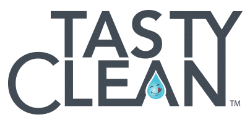A company as big as Amazon has tremendous power to change the marketplace with any move it makes. So its silence on reducing toxic chemicals in its products has been troubling. But that changed recently with a new announcement that the company has adopted a new chemicals policy to reduce harmful chemicals in some of its products and provide consumers with better information on chemical ingredients.
With this initial policy, Amazon has pledged to reduce and eliminate 54 chemicals in its private label brand baby and adult personal care and beauty products, as well as in its private label home cleaning products. Chemicals the company will tackle first include parabens, formaldehyde-releasers, phthalates, and nonylphenol ethoxylates (NPEs).
The company is also pledging increased transparency for ingredients in its brands, adding new “website features that will make it easier for customers to access comprehensive information about product ingredients and third-party certifications.” If Amazon follows through with this promise, this new information will help customers make informed buying decisions and put pressure on other companies to do the same.
Customer Demand for Less Toxic Products Keeps Increasing
All of this is welcome news to consumers, whose demand for products free of harmful chemicals apparently helped push Amazon to adopt the policy. The company noted its chemicals policy meets customer demand, writing on its website:
Amazon strives to be earth’s most customer-centric company. We are committed to developing high-quality and affordable Private Brand products that customers love. Part of our commitment to quality is avoiding chemicals of concern in our products that can affect human health and/or the environment.
It’s great that Amazon is starting to catch up to other retailers like Walmart and Target. These companies were some of the first companies to adopt chemicals policies years ago thanks in part to work done by the Mind the Store Campaign, of which Toxic-Free Future is a member.
It’s extremely important that Amazon joins this club of retailers to leverage their market power and provide healthier products for customers. But the move isn’t just great for Amazon’s customers, it’s great for all consumers and workers too. As Amazon moves away from toxic chemicals to healthier products, the availability of these products in the wider marketplace should increase as other retailers compete with similar types of products. It’s good for worker health as the global supply chain shifts away from chemicals and workers are exposed to less toxic materials.
So what’s next?
With an estimated 50% market share of e-commerce sales or $252 billion by the end of 2018, Amazon can to do much more.
1. Phaseout More Chemicals in Other Product Categories
Amazon should address harmful chemicals that are used in large amounts and/or are present in many consumer products, like flame retardants in TVs and electronics, and PFAS in clothing and food packaging.
- Electronics
Electronics are one of the largest uses of toxic flame retardants, and a source of these chemicals in our homes and environment. Electronics represent the largest percentage of sales for Amazon, at an estimated 25%. Amazon could lead the market by phasing out of harmful flame retardants in its electronics and transform the marketplace. The company also should comply with federal guidance issued by the federal Consumer Product Safety Commission (CPSC) that calls on manufacturers and retailers to stop selling consumer products containing certain toxic flame retardants. - Apparel
Amazon’s second largest sales category is apparel at an estimated 15% and growing. Clothing can contain harmful chemicals like waterproofing and stain-resistant PFAS chemicals, formaldehyde, and the plasticizers phthalates. It’s another area where the company could get out in front to provide its customers products free of harmful chemicals and move other companies in the same direction. - Food
Now that the grocery chain Whole Foods is part of the Amazon brand, Amazon can and should phaseout the use of PFAS-coated food packaging at Whole Foods. For example, takeout deli and salad bar containers can be coated with PFAS. These containers can contaminate food and compost with PFAS. The company is also expanding its private label foods and it should ensure these packages are PFAS-free too.
2. Establish timelines and goals
A company policy on chemicals is only good if it results in reducing chemicals. Amazon can show that its policy is working to really reduce chemicals by setting clear public goals and timelines for chemical phaseouts. Other retailers that have adopted similar policies have done so and Amazon should do the same.
3. Require Transparency for All Brands Sold on Amazon
Amazon should require that all brands it sells disclose the chemical ingredients in their products. Giving consumers information on chemicals allows them to make informed buying decisions and improves customer confidence in products. Increased transparency also can move companies toward safer materials because companies want to avoid labeling their product as containing a harmful chemical.
Hopefully this new chemical policy is a start, but not the end, of Amazon’s efforts to protect the health of consumers and the environment. As one of the biggest retailers in the world, Amazon has the power to lead on eliminating toxic chemicals in its products. We are confident it can. The question is whether it will.
Article source: ToxicFreeFuture.org

